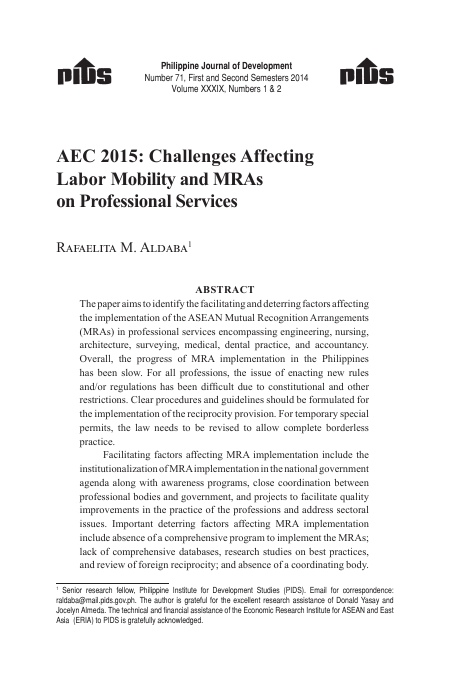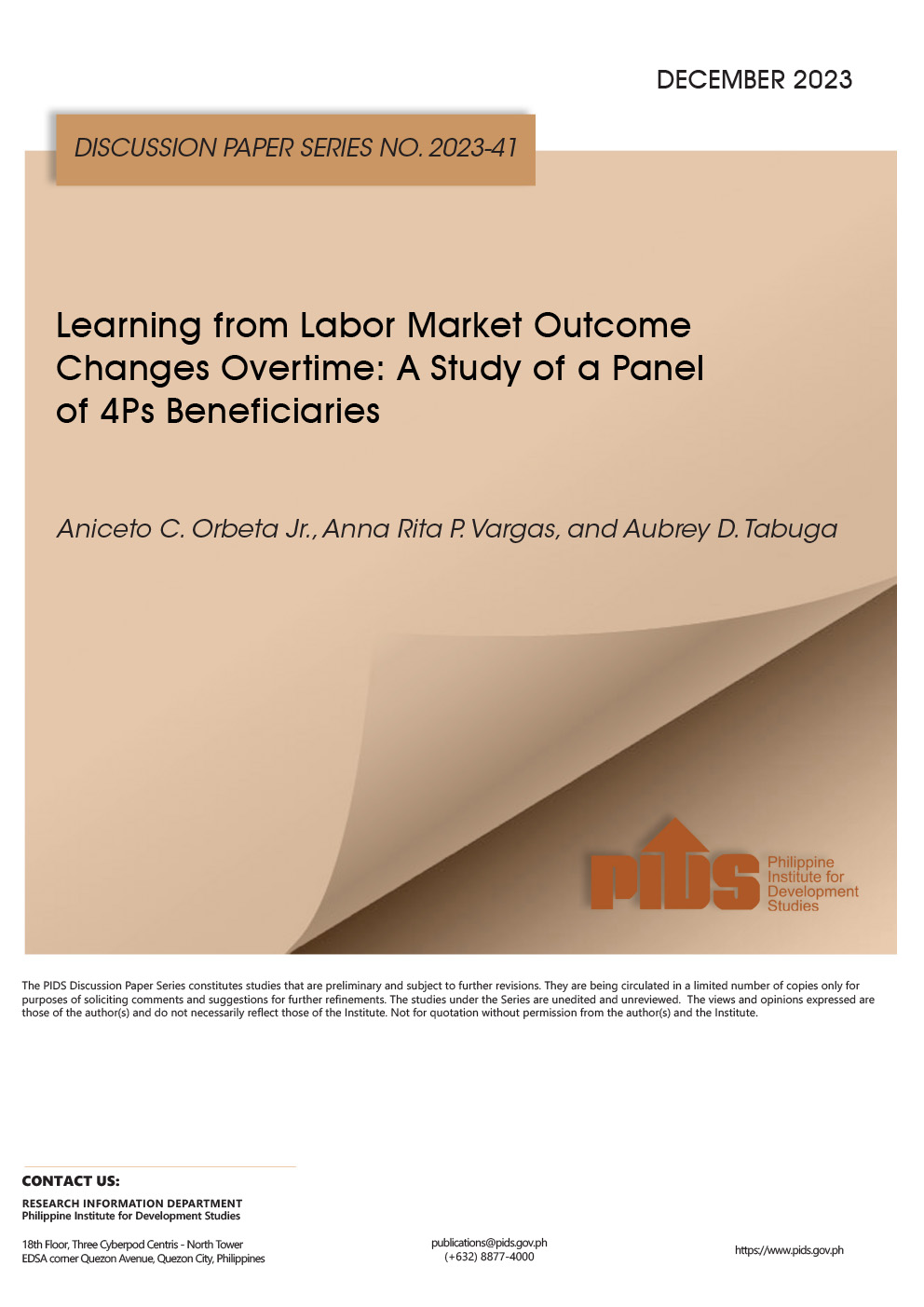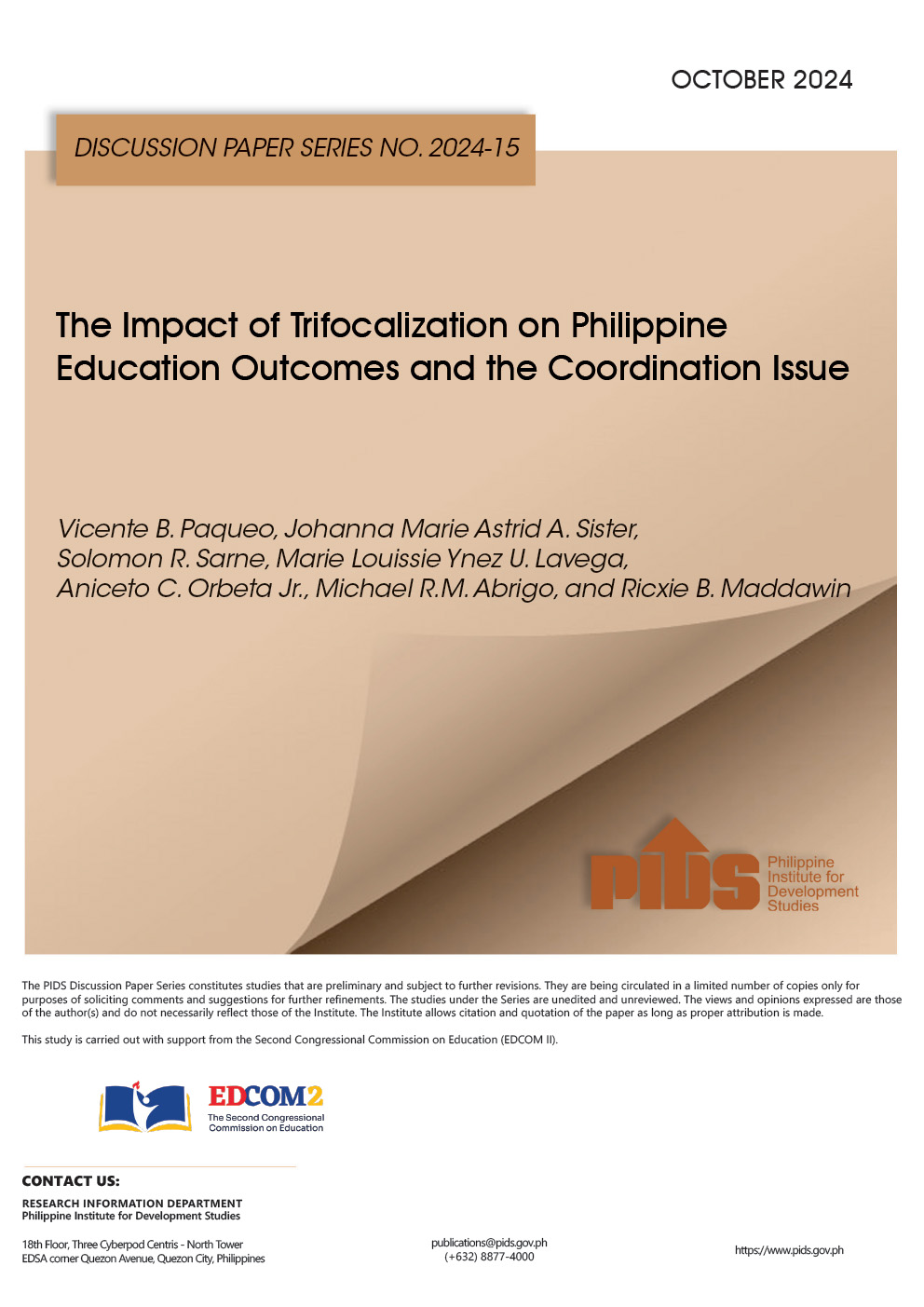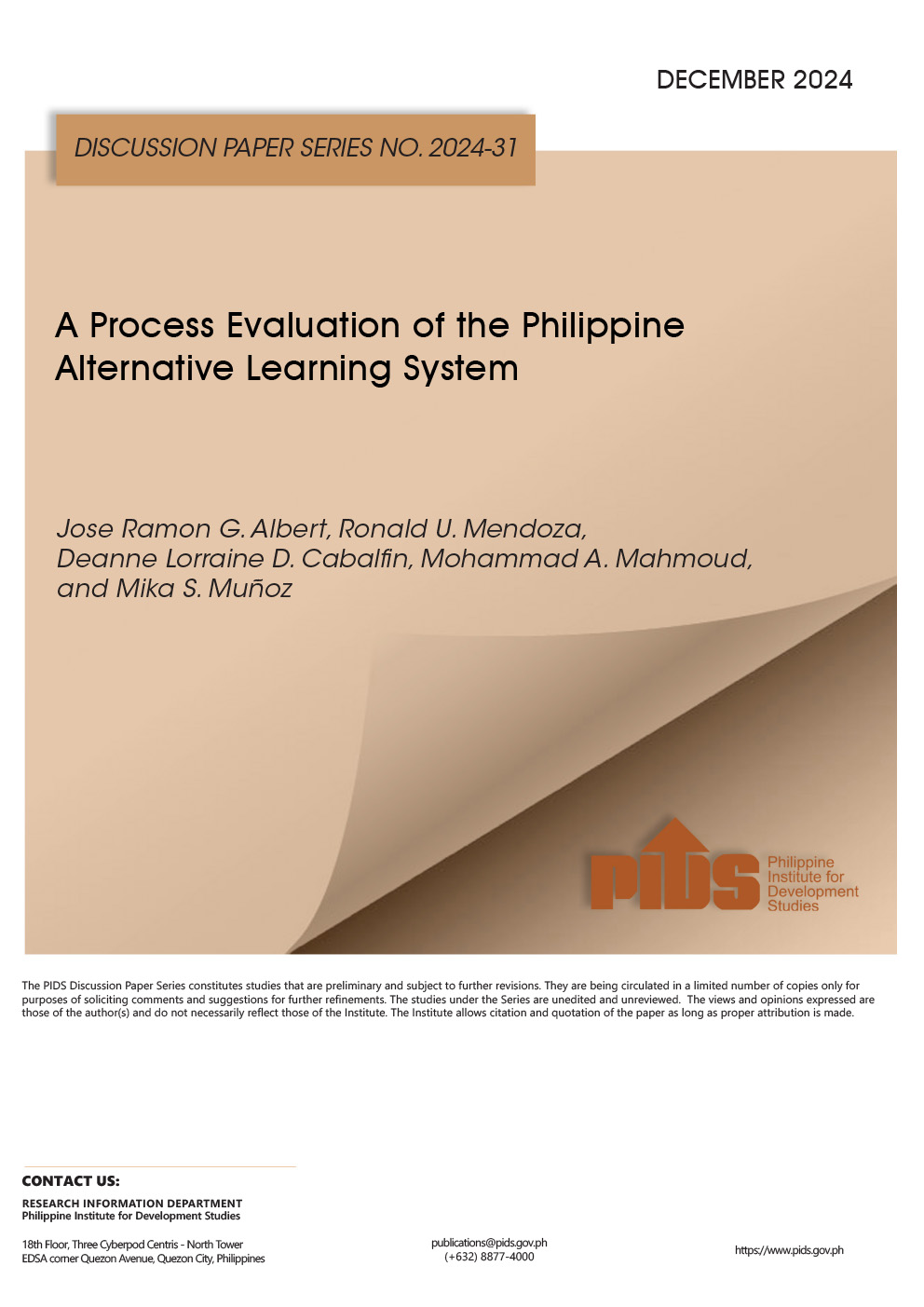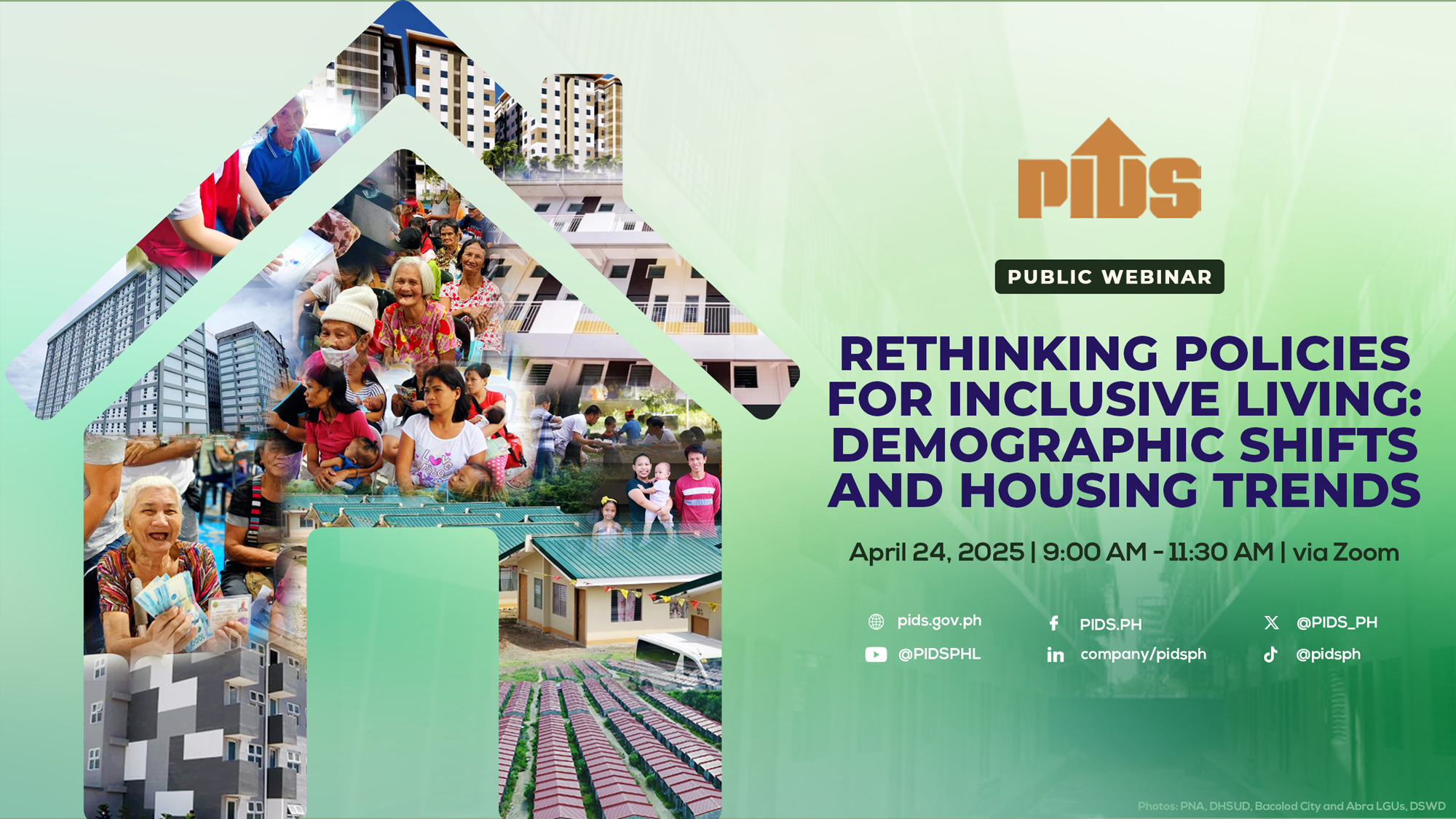The paper aims to identify the facilitating and deterring factors affecting the implementation of the ASEAN mutual recognition arrangements (MRAs) in professional services encompassing engineering, nursing, architecture, surveying, medical, dental practice, and accountancy. Overall, the progress of MRA implementation in the Philippines has been slow. For all professions, the issue of enacting new rules and/or regulations has been difficult due to constitutional and other restrictions. Clear procedures and guidelines should be formulated for the implementation of the reciprocity provision. For temporary special permits, the law needs to be revised to allow complete borderless practice.
To move the implementation of the MRAs forward, there is a need to continue efforts to improve the process and create clear criteria for the labor market test and the skill shortage list. The paper also suggests the formulation of clear rules and guidelines in implementing the foreign reciprocity provision, strengthening the capacity of the Professional Regulation Commission as the central body coordinating the different MRA activities, and crafting of a comprehensive and strategic framework on MRA implementation.

